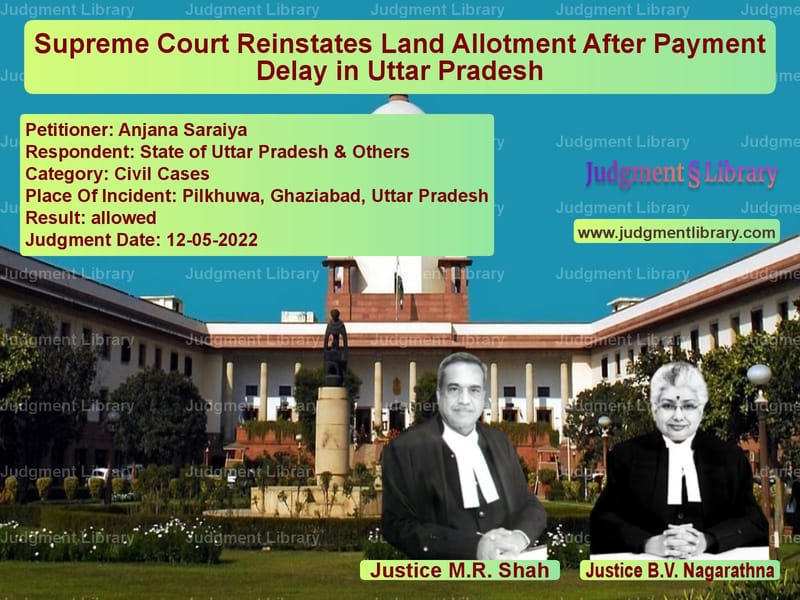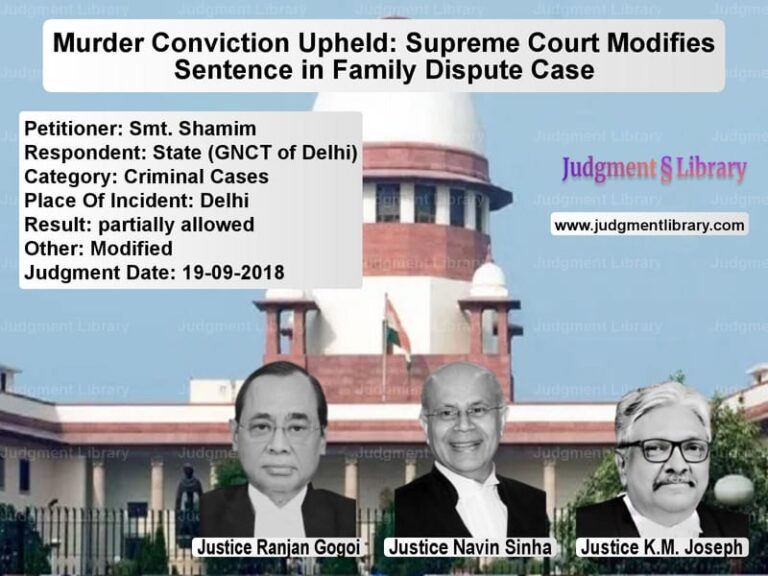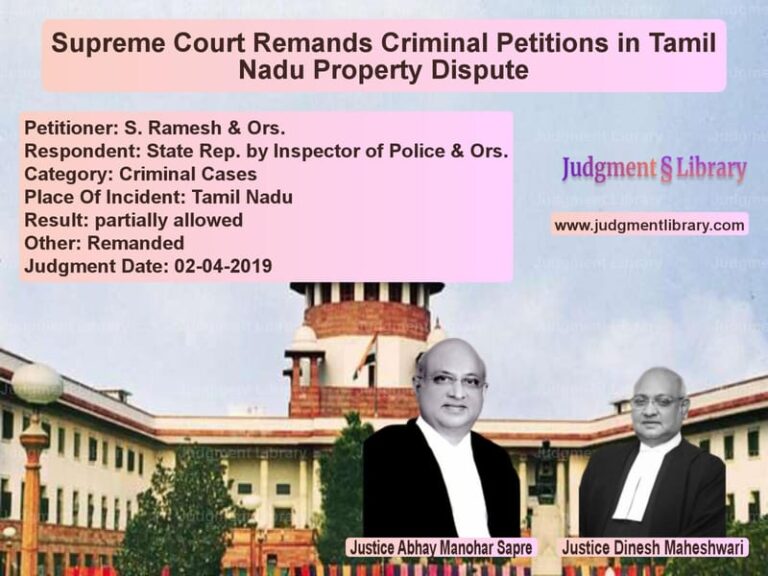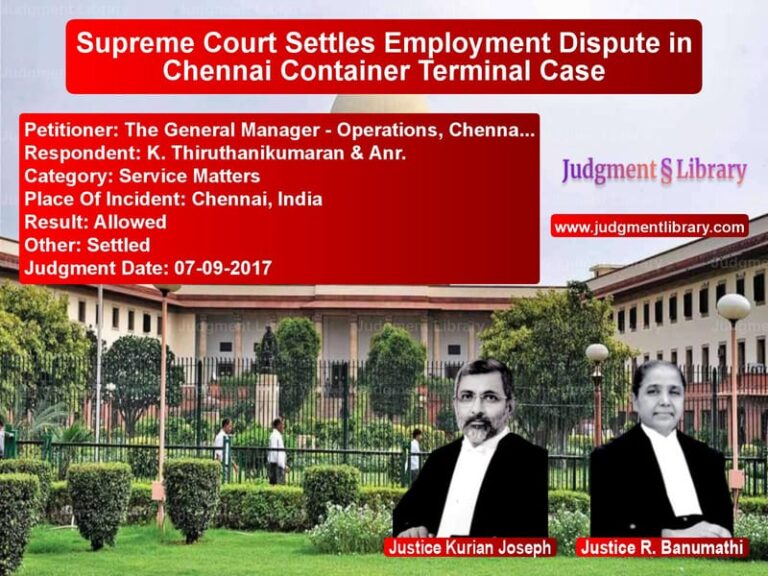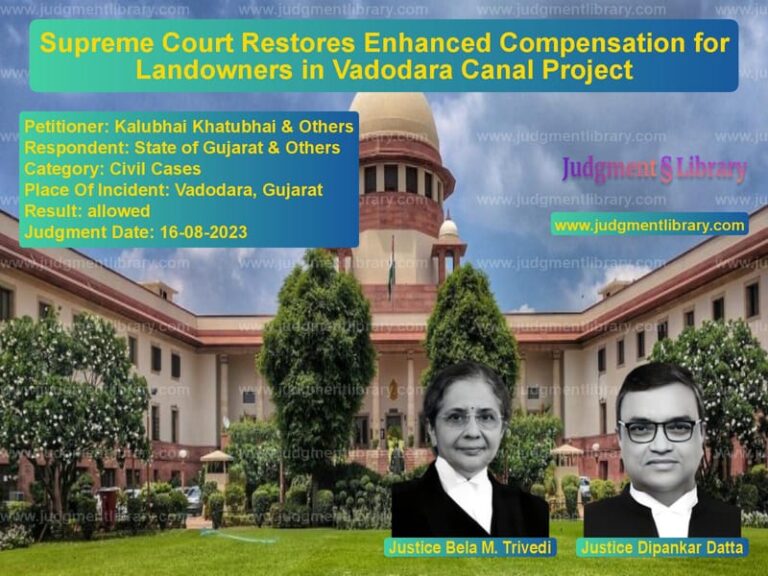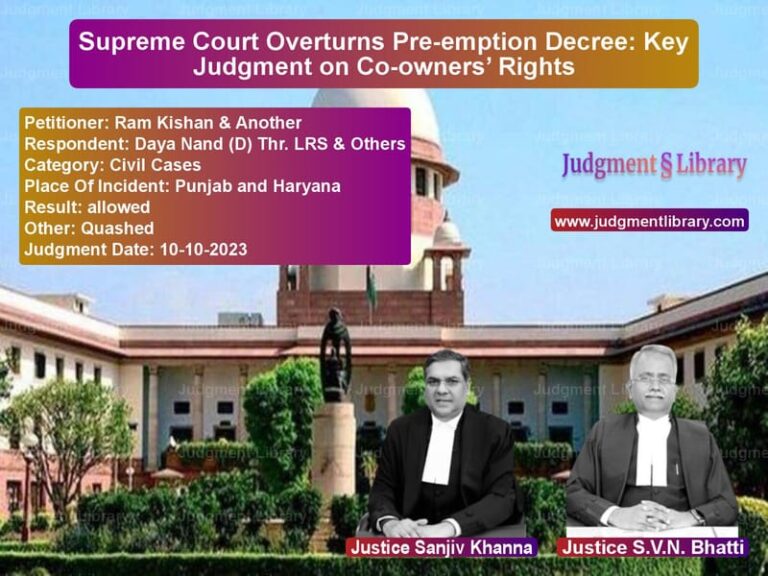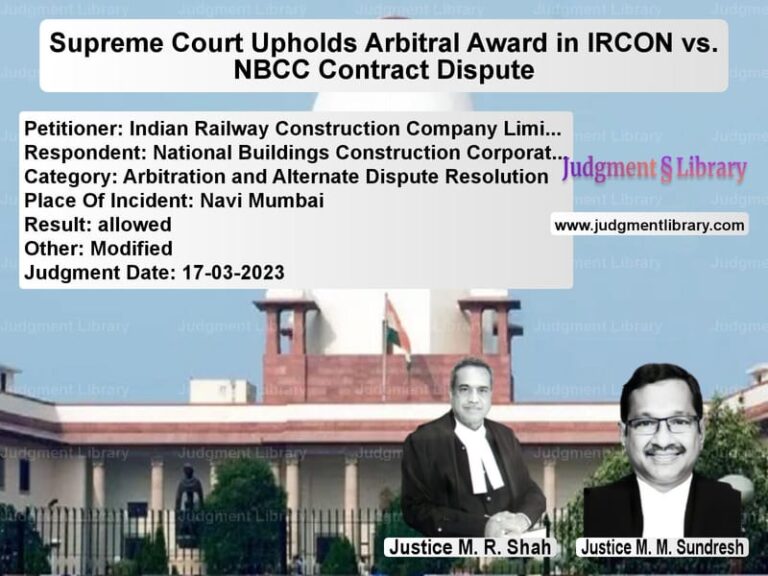Supreme Court Reinstates Land Allotment After Payment Delay in Uttar Pradesh
The case of Anjana Saraiya vs. State of Uttar Pradesh revolved around the cancellation of a residential plot allotment due to delayed installment payments. The Supreme Court ruled in favor of the appellant, allowing her to retain the plot after paying an additional compensation amount.
Background of the Case
Anjana Saraiya, a 55-year-old woman, was allotted Plot No. 415 in Phase-III, Pilkhuwa, Ghaziabad, under the Middle-Income Group (MIG) housing scheme. The total cost of the plot was Rs. 2,70,000. She made an upfront payment of Rs. 94,500 in 2003 and paid the first three installments on time. However, due to her husband’s prolonged illness and financial difficulties, she failed to pay the remaining four installments on time.
On June 14, 2006, the Municipal Council issued a notice informing her that her allotment had been canceled due to non-payment. However, before receiving the notice, she arranged funds and deposited the entire balance amount of Rs. 1,39,000 on June 16, 2006, including interest for late payment.
Despite clearing all dues, her allotment was not reinstated, and the Municipal Council proceeded to cancel the allotment. She challenged this cancellation in the Allahabad High Court, which dismissed her writ petition. She then appealed to the Supreme Court.
Key Legal Issues
- Whether the Municipal Council was justified in canceling the allotment despite full payment.
- Whether the appellant’s financial hardship justified an exception to the strict payment schedule.
- Whether the plot could be reinstated with additional compensation for delay.
Arguments Presented
Petitioner’s Arguments (Anjana Saraiya)
- She had already paid the full amount along with interest before being informed about the cancellation.
- The delay was due to unavoidable financial hardship caused by her husband’s illness.
- She was ready to pay an additional compensation of Rs. 2 lakh to regularize the payment.
- The cancellation was harsh and disproportionate given that the total amount, including interest, was paid.
Respondents’ Arguments (State of Uttar Pradesh & Municipal Council)
- The scheme required allottees to pay installments on time, and the appellant defaulted.
- The authorities had the right to cancel the allotment if payments were not made as scheduled.
- Reinstating her allotment would set a bad precedent, allowing others to delay payments.
- The refund process was already initiated, and she had the option to apply for a new plot.
Supreme Court’s Observations
The Supreme Court acknowledged that while the appellant failed to make timely payments, she had demonstrated her intent to fulfill her obligations. The key observations included:
- Good faith payment: The appellant had paid the full amount before receiving the cancellation notice, which showed good faith.
- Financial hardship considered: The Court noted that her delay was due to genuine financial difficulty and not negligence.
- Additional compensation required: The Court suggested that an additional Rs. 2 lakh payment would compensate for the delay.
- Plot remained unallocated: Since the plot had not been assigned to another person, reinstating her allotment was feasible.
Key Excerpts from the Judgment
The Supreme Court ruled:
“If on payment of a further sum of Rs. 2,00,000 towards compensation for the delayed payment of installments, the account of the appellant can be regularized, then the allotment made under the Middle-Income Group Scheme in favor of the appellant can be saved.”
The Court further observed:
“The appellant has deposited a total sum of Rs. 3,84,546 against the total value of Rs. 2,70,000. Considering her circumstances, the cancellation order should be set aside upon additional compensation.”
Final Verdict
The Supreme Court ruled in favor of the appellant with the following conditions:
- The cancellation order of June 14, 2006 was quashed.
- The appellant must pay an additional compensation of Rs. 2,00,000 within six weeks.
- Upon payment, the authorities must reinstate her allotment and hand over possession.
- All legal proceedings regarding the cancellation were declared closed.
Outcome: The ruling reinforced the principle that financial hardship should be considered in land allotment cases, and reasonable accommodations should be made for genuine defaulters.
Petitioner Name: Anjana Saraiya.Respondent Name: State of Uttar Pradesh & Others.Judgment By: Justice M.R. Shah, Justice B.V. Nagarathna.Place Of Incident: Pilkhuwa, Ghaziabad, Uttar Pradesh.Judgment Date: 12-05-2022.
Don’t miss out on the full details! Download the complete judgment in PDF format below and gain valuable insights instantly!
Download Judgment: anjana-saraiya-vs-state-of-uttar-prade-supreme-court-of-india-judgment-dated-12-05-2022.pdf
Directly Download Judgment: Directly download this Judgment
See all petitions in Property Disputes
See all petitions in Consumer Rights
See all petitions in Judgment by Mukeshkumar Rasikbhai Shah
See all petitions in Judgment by B.V. Nagarathna
See all petitions in allowed
See all petitions in supreme court of India judgments May 2022
See all petitions in 2022 judgments
See all posts in Civil Cases Category
See all allowed petitions in Civil Cases Category
See all Dismissed petitions in Civil Cases Category
See all partially allowed petitions in Civil Cases Category

